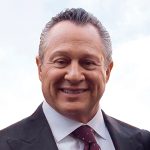Charlie Munger, vice chairman of Berkshire Hathaway, once said: “There is no better teacher than history in determining the future. There are answers worth billions of dollars in a $30 history book.”
Because of that I decided one of my ways to improve so I’m better this week than I was last week is by listening to a biography every week. In honor of Memorial Day, I listened to “Yeager,” an autobiography by Chuck Yeager.
Brigadier General Charles Elwood Yeager made history on October 14, 1947, when he became the first pilot ever to exceed the speed of sound in level flight. A native of Hamlin, West Virginia, the United States Air Force officer broke the sound barrier about 40,000 feet over the Mojave Desert, flying a bright orange Bell X-1 experimental rocket engine-powered aircraft.
Here are a few lessons to learn from this flying ace:
Find comfort in the uncomfortable
Many times in the book, Yeager references the value of pushing past your comfort zone to achieve success. It’s something he did throughout his lifetime—as a fighter pilot in World War II, testing the experimental plane that broke the sound barrier, and as a leader of one of the most effective fighter squadrons to ever exist. He parachuted into a pine forest to escape being captured, slid down a mountain on an improvised log slide to escape a German patrol and even performed field surgery by amputating a navigator’s leg with a pen-knife. Many people recognize Yeager as one of the greatest military pilots ever, and it’s in large part due to his ability to not only step outside his comfort zone but also thrive once he got there. Albert Boyd, who was Colonel and Chief of the Flight Test Division at Wright Field during the summer of 1947, once described selecting Yeager as the primary X-1 pilot for the famous supersonic flight because of his “tremendous ability as a pilot” and “coolness under pressure.”
Lead by example
Yeager’s leadership in combat during WWII is a textbook case of leading by example. He set high standards for the rest of the team and gave them confidence in what they could accomplish together. One example of Yeager’s extraordinary feats can be found in the way he became a fighter “ace,” which is defined as a pilot who has shot down a minimum of five enemy aircraft in aerial combat in their career. Very few wartime pilots achieve this status in their lifetime; Yeager did it in one single combat mission. On October 12, 1944, while flying Glen III, he got his squadron in chase position behind German fighters and downed five Bf 109 fighters to become an ace by the end of the day.
Persevere no matter what
The historic flight that broke the sound barrier might not have happened without Yeager’s perseverance. Only two days before the scheduled supersonic 1947 flight, Yeager was thrown off while riding a horse at night with his wife and broke two ribs. He didn’t want to tell his superiors because he thought they might delay or choose another pilot for the upcoming flight, so he visited a civilian doctor who taped his ribs. On the day of the flight, Yeager fought through incredible pain and discomfort—he had to use a broom handle to secure the cockpit canopy—and ultimately made history. Then, on October 14, 2012, to celebrate the 65th anniversary of his record-breaking supersonic flight, Yeager returned to the Mojave Desert as a military consultant to co-pilot an F-15D fighter at supersonic speed. He was 89 years old.
Thirst for new knowledge
Richard H. Frost, a chief flight test engineer on the X-1 supersonic flight program described Yeager as “completely nerveless,” adding: “He’s the coolest guy I’ve ever seen, and it’s been my business to see a lot of pilots preparing for flights of doubtful outcome.” Another notable quality of Yeager’s observed by the program staff was his “unquenchable thirst for knowledge” as Frost described it. Yeager wanted to know absolutely everything he could about the airplane and its systems. He asked questions others hadn’t even thought of and grasped highly technical concepts with the understanding of an engineer. It was this depth of knowledge—and continual hunt for it—that made him not just a fantastic pilot but arguably the best pilot to ever fly.
Experience is everything
One of the things that stood out for me the most in listening to the book was Yeager’s comment about experience. Explaining why experience is so valuable, Yeager said that he’d rather face an enemy with a superior plane and less experience than someone with more experience flying a less superior plane.
So, what’s the message? Yeager famously noted that just before the sound barrier is broken, the plane’s cockpit shakes more than at any other point in the flight. But without this risk, there is no reward. Yeager’s view? “You don’t concentrate on risks. You concentrate on results. No risk is too great to prevent the necessary job from getting done.”
This article is adapted from Blefari’s weekly, company-wide “Thoughts on Leadership” column from HomeServices of America.












